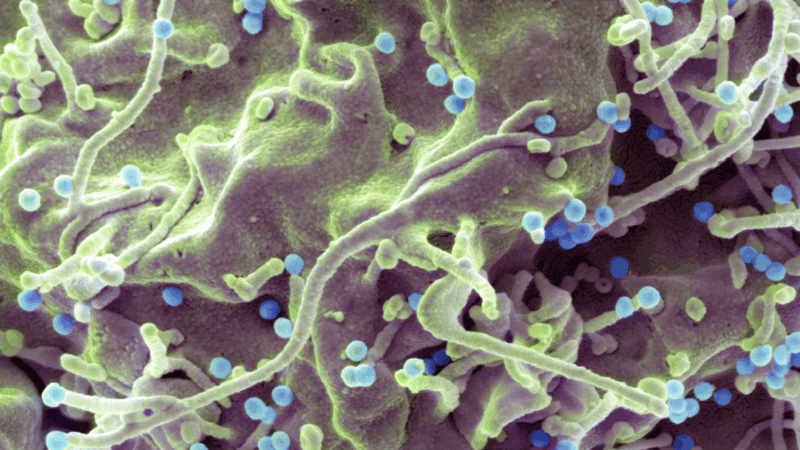How surgeons build a new bladder for cancer patients like Deion Sanders
At 57, two-time Super Bowl champion Deion Sanders, has a brand-new bladder.
The University of Colorado coach recently underwent reconstructive surgery to treat an aggressive form of bladder cancer after doctors discovered a tumor this spring.
The procedure, called neobladder reconstruction, uses tissue from the patient’s own small intestine.
Here’s how it’s done:
First surgeons remove the old bladder. Then they cut out about a foot and a half from the ileum, the end section of the small intestine.
Then the surgeon cuts down one side of the segment of intestine so that it lays flat like a sheet. Next, they fold it in half, top to bottom, and then connect the back part to the front.
The end result resembles a volleyball covered in sutures, said Dr. Max Kates, codirector of the Greenberg Bladder Cancer Institute at Johns Hopkins University.
Finally, the surgeon sews the neobladder to the kidneys and urethra.
The human body’s ability to adapt to such a procedure is “amazing,” says Sanders’ surgeon, Dr. Janet Kukreja, director of urologic oncology at the University of Colorado Cancer Center. Patients usually spend just a few days recovering in the hospital.
She performed Sanders’ neobladder reconstruction robotically and with a laparoscopic camera, a method that only requires small incisions.
Kukreja told NPR that a cool aspect of this surgery is that because the neobladder is created from the body’s own tissue, a patient’s immune system doesn’t reject the new organ. So patients with neobladders don’t need immunosuppressant medications.
Plastic wouldn’t work either to reconstruct a bladder since the urinary tract rejects foreign materials, said Kukreja. Calcium would build up giving patients bladder stones.
A reconstructed bladder doesn’t function exactly like someone’s original bladder because it can’t send signals to the brain to let a person know when to use the toilet.
Getting used to a neobladder takes some training, says Dr. Jodi Maranchie, a surgical urologic oncologist at UPMC in Pittsburgh. Gradually they increase the interval between bathroom visits until they can comfortably control their bladder during the day. But leakage often remains an issue for people while they sleep.
During a Monday press conference, Sanders acknowledged this drawback. He joked that, like his one-year-old grandson, he now “depends on the Depends.”
“I know there’s a lot of people out there going through what I’m going through. And dealing with what I’m dealing with,” he said. “And let’s stop being ashamed of it.”
Kates said a lot of people do feel shame around the incontinence that comes with a neobladder reconstruction.
Which is why Kates told NPR that he “loved every moment” of Sanders’ press conference. The urologist described the Pro Football Hall of Famer as authentic and funny, “the guy was anything but shameful.”
In fact two of Kates’ patients, both men around Sanders’ age, mentioned the press conference: “They both felt completely validated by him.”
An estimated 85,000 people in the U.S., will get bladder cancer this year, according to data from the American Cancer Society. While most patients with bladder cancer are men, Maranchie said that women tend to present with a more advanced and slightly more aggressive disease.
Because the only symptom of bladder cancer is blood in urine, she theorized that some women mistake this warning sign for menstrual blood.
But Sanders shared that his tumor was discovered during an annual checkup.
He said if he hadn’t gone in for that appointment, things might have turned out very differently.
“Please get yourself checked out,” he said. “Because if it wasn’t for me getting tested for something else they wouldn’t have stumbled up on this. Make sure you get the right care.”
Transcript:
AILSA CHANG, HOST:
University of Colorado football coach Deion Sanders has a brand new bladder. It’s called a neobladder, and it’s made from his small intestine. The two-time Super Bowl champion recently underwent reconstructive surgery to treat an aggressive form of bladder cancer. Health reporter Sarah Boden has a report on this procedure.
SARAH BODEN: To build a new bladder, a surgeon takes about a foot and a half of the small intestine and then cuts it down one side so it lays flat like a sheet. Then they fold it in half, top to bottom, and then connect the back part to the front, hook it up to the kidneys and urethra, and then you have a whole new organ.
JANET KUKREJA: The human body is amazing.
BODEN: Dr. Janet Kukreja is director of urolic oncology at the University of Colorado Cancer Center. She performed Sanders’ surgery after a cancerous tumor was discovered this spring. Kukreja says one cool thing about neobladder reconstruction is a patient’s immune system doesn’t reject the new organ because it’s made from their own tissue.
KUKREJA: So then they don’t have to take immunosuppression.
BODEN: Theoretically, if you transplanted someone else’s bladder, the patient would have to take these medications. Also, a plastic bladder won’t work either.
KUKREJA: And anything in the urinary tract has to be their own tissue. Otherwise, calcium builds up on it, and people get stones.
BODEN: Now, a reconstructed bladder doesn’t function exactly like someone’s original bladder. For example, it can’t send signals to the brain to let you know when you need to use the toilet. Dr. Jodi Maranchie is a surgical urolic oncologist at UPMC in Pittsburgh, and she says, this isn’t a big deal during the day.
JODI MARANCHIE: They’re able to hold the urine in when they’re awake and alert.
BODEN: It’s more of a problem at night. During a Monday press conference, Sanders acknowledged this drawback. He joked that, like his 1-year-old grandson, he now depends on Depends. It just takes time to relearn how to use the bathroom with a new bladder.
(SOUNDBITE OF ARCHIVED RECORDING)
DEION SANDERS: And I know there’s a lot of people out there going through what I’m going through and dealing with what I’m dealing with. And let’s stop being ashamed of it.
BODEN: An estimated 85,000 people in the U.S. will get bladder cancer this year. About 1 in 5 of those patients will die.
MARANCHIE: About two-thirds of bladder cancer patients are men, but women tend to present with more advanced and slightly more aggressive disease.
BODEN: Maranchie says the main sign that something is wrong is blood in the urine. But Sanders said that wasn’t the case for him. His tumor was found during an annual checkup, and that saved his life.
(SOUNDBITE OF ARCHIVED RECORDING)
SANDERS: But please, get yourself checked out.
BODEN: And because he did go to the doctor, he’s alive and back to coaching. For NPR News, I’m Sarah Boden.
(SOUNDBITE OF MUSIC)
This quiet epic is the top-grossing Japanese live action film of all time
The Oscar-nominated Kokuho tells a compelling story about friendship, the weight of history and the torturous road to becoming a star in Japan's Kabuki theater.
The Live Nation trial could reshape the music industry. Here’s what you need to know
On Tuesday opening statements will begin for the federal antitrust trial against Live Nation, one of the largest entertainment companies in the world.
A new one-a-day-pill holds promise for HIV’s ‘forgotten population’
It's designed to take the place of complicated, multiple drug regimens that many people with HIV need to follow. And it's also beneficial because the HIV virus is always evolving.
For filmmaker Chloé Zhao, creative life was never linear
Director Chloé Zhao used meditation, somatic exercises and dance to inspire the cast and crew of this Oscar-nominated story about William Shakespeare's family.
10 new books in March offer mental vacations
March is always a big one for books – this year is no different. We call out a handful of upcoming titles for readers to put on their radars — offering a good alternative to doomscrolling.
Sen. Chris Coons, D-Del., talks about the war with Iran and upcoming war powers vote
NPR's A Martínez asks Delaware Democrat Chris Coons, a member of the Senate Foreign Affairs Committee, about the war with Iran.







